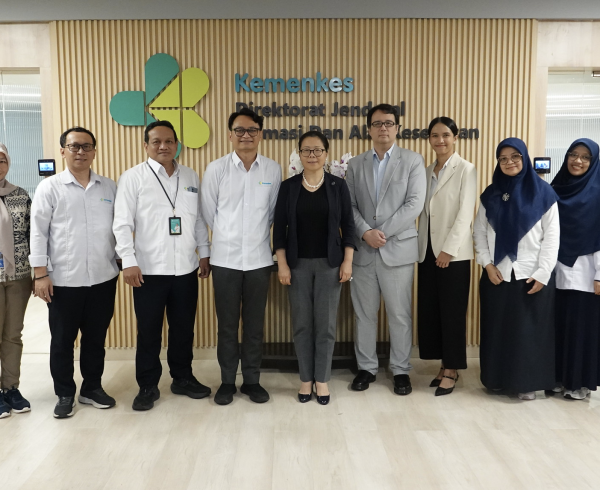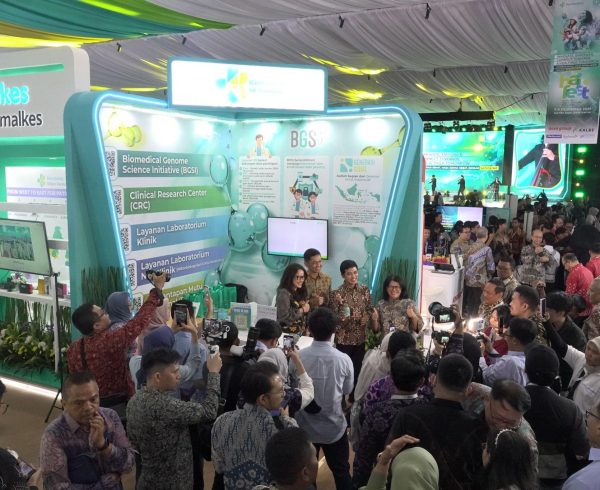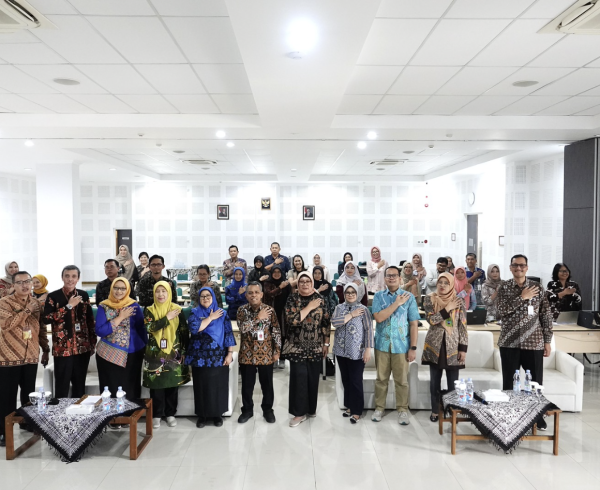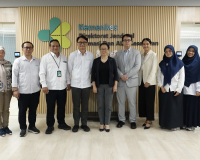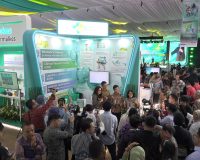The Ministry of Health is committed to transforming the health system through 6 pillars of transformation that support Indonesian health. One of them is the transformation of the health security system in increasing the resilience of the pharmaceutical and medical device sector. In line with this, the Ministry of Health has issued Minister of Health Regulation No. 17/2017 on the Action Plan for the Acceleration of the Development of the Pharmaceutical and Medical Device Industry where one of the mandates is to encourage the establishment of product testing laboratories and product certification bodies (LSPro) with the scope of accredited medical devices in the context of certifying domestically produced medical devices.
Tuesday, May 17, 2022. Director General of Pharmaceuticals and Medical Devices L. Rizka Andalucia had the opportunity to give remarks and directions at the Focus Group Discussion activity, (Session 3) Domestic Medical Device Testing: Solution or Politicization? virtually through the zoom meeting platform.
The activity organized by the Association of Medical Device and Laboratory Company Organizations in Indonesia (GAKESLAB Indonesia) was the 3rd FGD Session, where previously Gakeslab had held Session 1: Malaria RDT Requirements to Encourage Innovation and Independence; and Session 2: Dissection of Electromedical Medical Device Development Issues.
In her remarks, Director General Rizka said that currently the availability of product test laboratories that meet the standards and are accredited in the country is still limited, and in general each country has its own medical device testing laboratory. So that the fulfillment of the need for testing of domestically produced medical devices can be done.
Furthermore, the Director General said that medical device test laboratories must meet several requirements, namely the test laboratory must be accredited according to national and international standards (for example SNI ISO / IEC 17025: 2017, SNI ISO 15189: 2012), have technical competence, access to external experts if needed, adequate resources such as specific test equipment and internal quality management systems and instrument calibration facilities.
“Although there are already several medical device testing laboratories and in vitro diagnostic medical devices managed by the private sector and accredited by the National Accreditation Committee (KAN), such as Sucofindo, Intertek, Qualis, and Saraswanti, the scope of testing is still limited,” said the Director General.
The limitations of the Test Laboratory with the scope of medical devices and in vitro diagnostic medical devices both in terms of product test capabilities, test methods, testing time speed, laboratory distribution and accreditation aspects, as well as the absence of a national test laboratory for medical devices that is a reference for the final determination of test results, so for some product test parameters still have to be tested abroad because the capabilities of domestic test laboratories are inadequate.
The government as a regulator has an interest in providing adequate testing laboratories in order to oversee and realize the safety and quality of medical devices in circulation which will also have an impact on the recognition of the quality of health services in Indonesia because it is supported by the use of quality medical devices. The application of the same quality standards of medical equipment testing to domestically produced medical equipment will have the impact of growing confidence in the quality of Indonesian medical devices so that they are able to compete in the global arena amid other foreign production.
“Thus, through the strengthening of the medical device testing laboratory that is currently being implemented, it is expected to make a major contribution to quality assurance of medical devices in circulation and in improving the quality of domestic medical device products,” explained the Director General.
In this activity, representatives from the Directorate General of Pharmaceuticals and Health Equipment, Director of Production and Distribution of Medical Devices, Sodikin Sadek, who currently also serves as Acting. Director of Pharmaceutical and Medical Device Resilience.
“Currently there is a new decision from the Minister of Health that there are 4 BPFK (Health Facility Safety Center) which are transferred to the supervisor at the Directorate General of Pharmaceuticals and Medical Devices, we are preparing an academic paper for the development of its duties into product testing,” he said. The Directorate General of Pharmaceuticals and Medical Devices is strengthening existing test laboratories, both test laboratories that are UPT of the Ministry of Health, state university laboratories and laboratories owned by other ministries/institutions that have the potential to be developed into medical device test laboratories. The availability of sufficient quantitative and qualitative laboratories will greatly support the optimization of the implementation of premarket supervision and postmarket supervision.




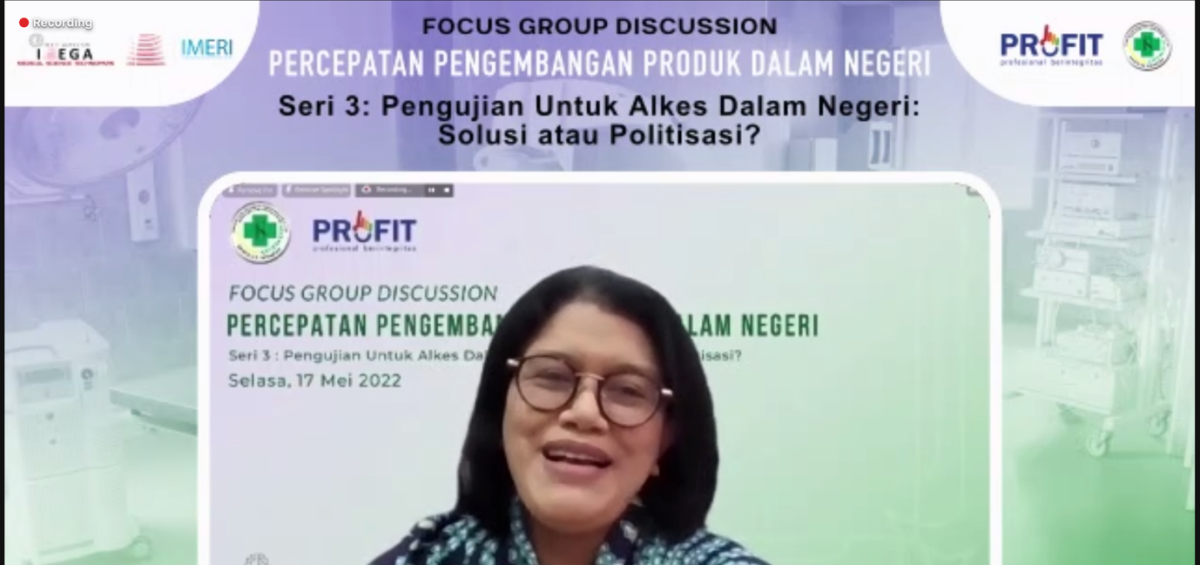 Director General of Pharmaceuticals and Medical Devices L. Rizka Andalucia opened the Focus Group Discussion, (Session 3) “Domestic Medical Device Testing: Solution or Politicization?”, online on 17 May 2022.
Director General of Pharmaceuticals and Medical Devices L. Rizka Andalucia opened the Focus Group Discussion, (Session 3) “Domestic Medical Device Testing: Solution or Politicization?”, online on 17 May 2022.